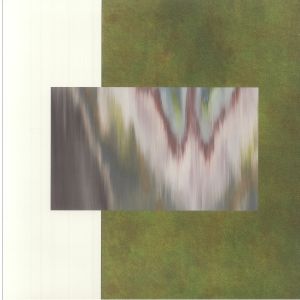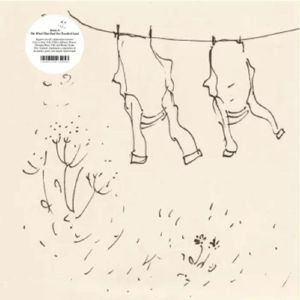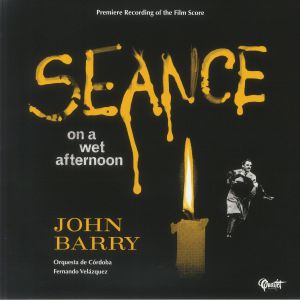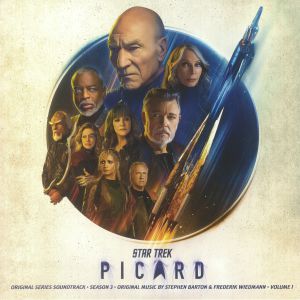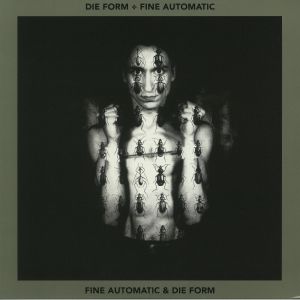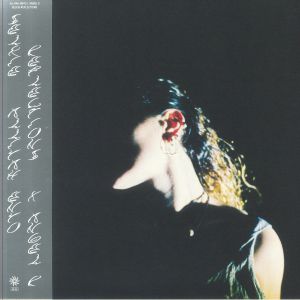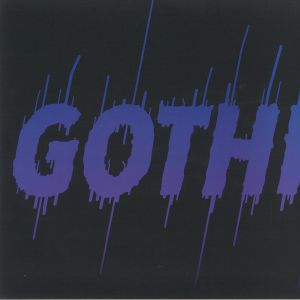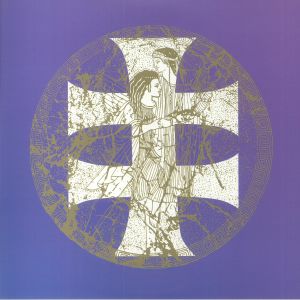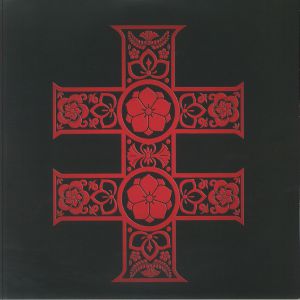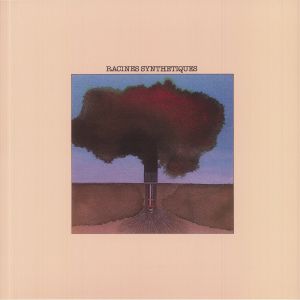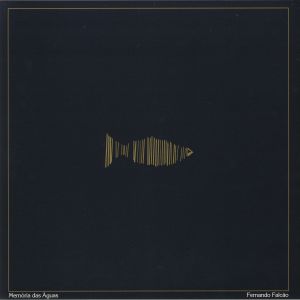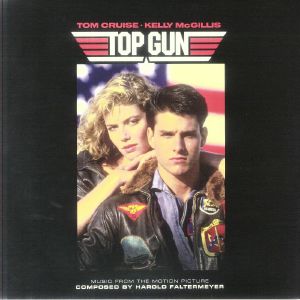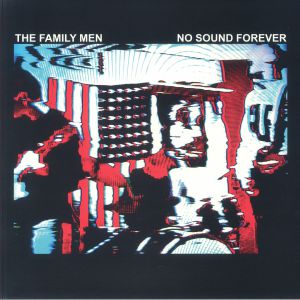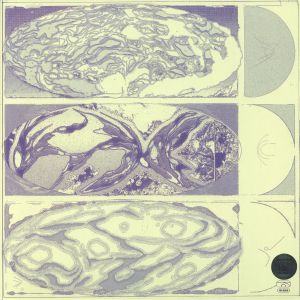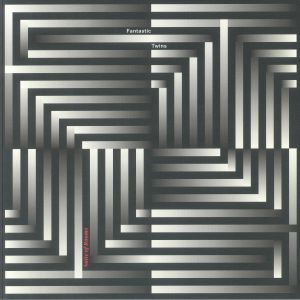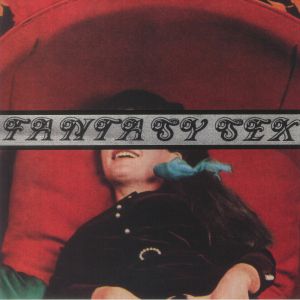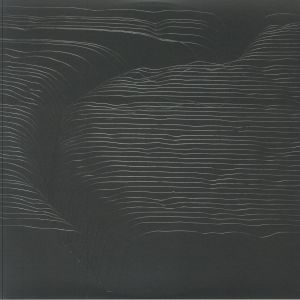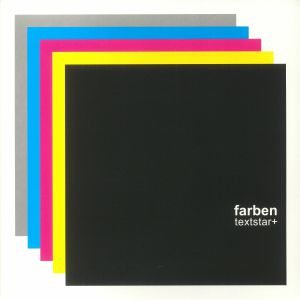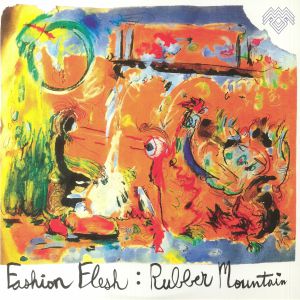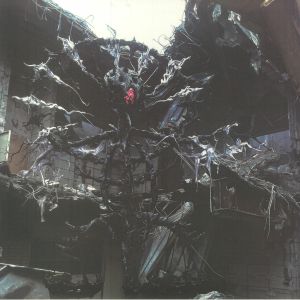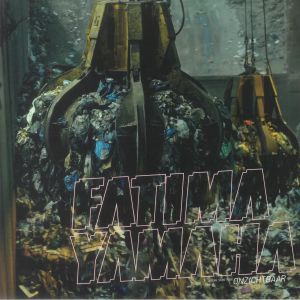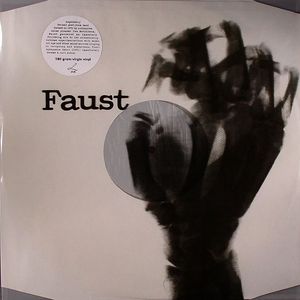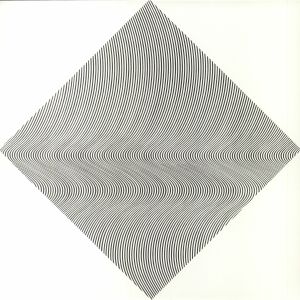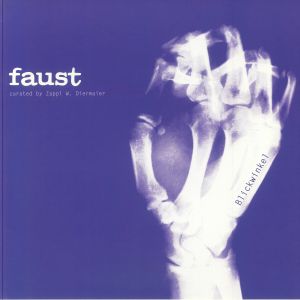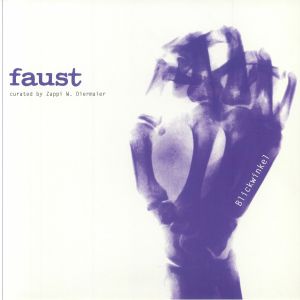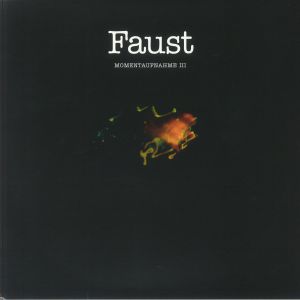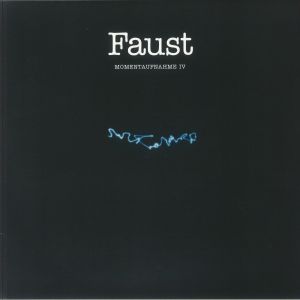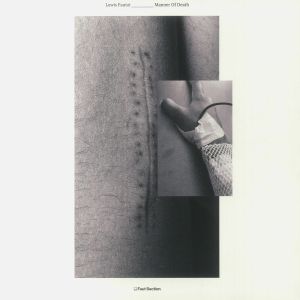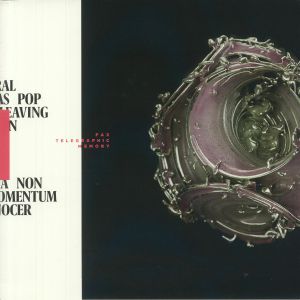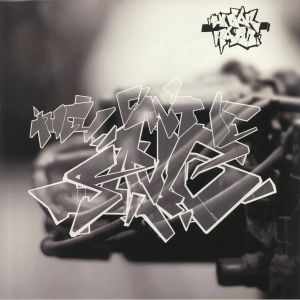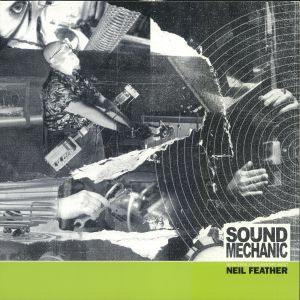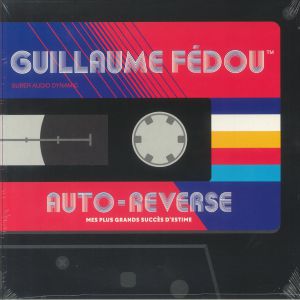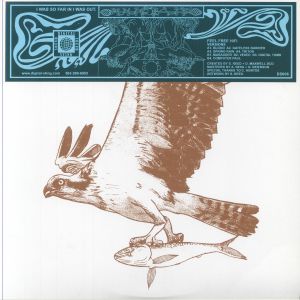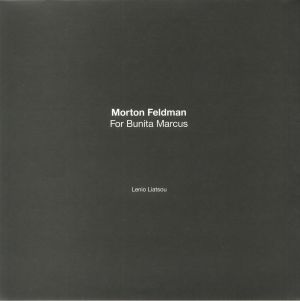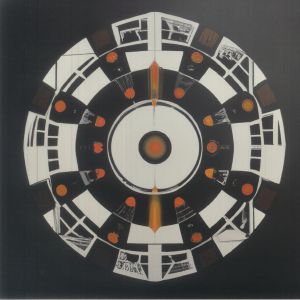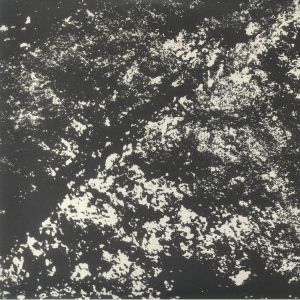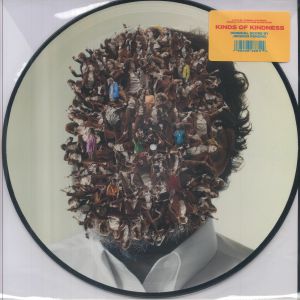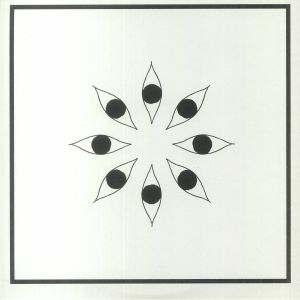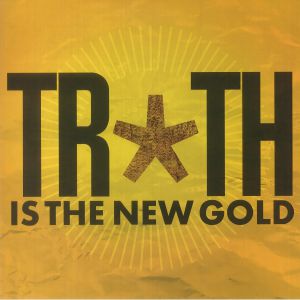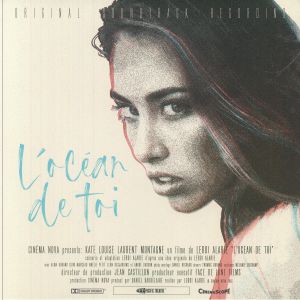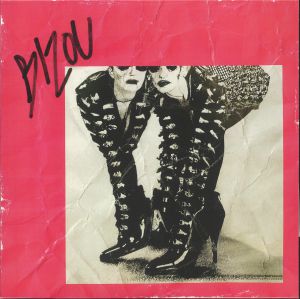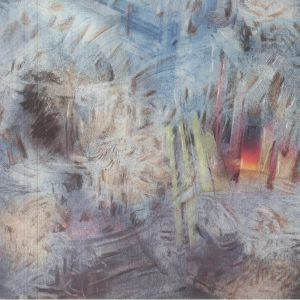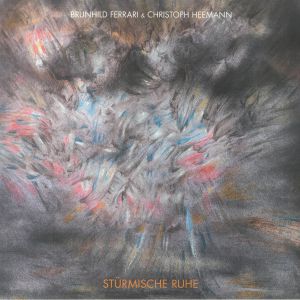Filter
Genre
Type
Music
Format
Release Date
Label
Featured
Release Title
Price
Tags
Back catalogue: Leftfield
Juno's full catalogue of Leftfield
Álbumes
Visioni Fuggitive (gatefold LP + insert)
Cat: NSP 05. Rel: 03 Dec 24
in stock $39.79
The Wind That Had Not Touched Land (LP + insert)
Cat: ACOLOUR 052. Rel: 30 Apr 25
in stock $23.77
Seance On A Wet Afternoon (Soundtrack) (60th Anniversary Edition) (limited audiophile LP)
Cat: QRLP 52. Rel: 13 Mar 25
in stock $31.51
Star Trek: Picard Season 3 Volume 1 (Soundtrack) (gatefold sky blue & white burst vinyl 2xLP)
Cat: LKSO 36331. Rel: 10 Aug 23
Review: Star Trek Picard is a TV series that has been as healed for its great soundtrack as much as any of the on screen action. The award winning British composer Stephen Barton (also known for his work on Star Wars Jedi Fallen) is behind it and his work on the third season might be the best yet. Pulled out of retirement once more, Jean-Luc Picard (played by the legendary Patrick Stewart) seeks help from Captain Riker to answer a distress call and uncovers a conspiracy reaching to the furthest corners of the Federation as well as the unwelcome return of an old foe. Thematic is dramatic, absorbing and emotive and is all captured on this record.
… Read more in stock $38.69
Berlin Atonal Vol 3 (gatefold 3xLP)
Cat: ATONAL 001. Rel: 26 Aug 15
Review: Berlin Atonal returned two years ago from a long hiatus, 23 years to be exact. After three tremendous festivals this decade, they now present us with their first recordings since 1984. These particular ones from the 2014 edition. Cabaret Voltaire (in this incarnation featuring only Richard H Kirk) was a true highlight and contributes "Microscopic Flesh Fragment" and "Universal Energy". One half of Demdike Stare Miles Whitaker went solo, presenting his truly unique take on techno, and the slow burning attitude of "Vagabond No. 7" is evidence of this. New Zealand's Fis also appears; rather uncategorisable as always on "Dist CL (Atonal Version)." On the third disc we have Northern Electronics main man and modern auteur Abdulla Rashim presenting two commissions from his captivating atmospheric set that year. Limited to 700 copies.
… Read moreIntérprete: Juno Recommends Techno, Kastil (Soul Notes/Stale)
in stock $40.08
Apocalypse Now: Final Cut (Soundtrack) (gatefold 2xLP with obi-strip)
Cat: MOND 315B. Rel: 25 Nov 24
Review: The music from Apocalypse Now is a compelling piece of the film's unique atmosphere, composed by Carmine Coppola and his son, Francis Ford Coppola. This remastered gatefold 2xLP presents a score that is anything but conventional. Featuring bold electronic experimentation, the music complements the film's depiction of chaos and inner turmoil. Tracks like 'The Delta' and 'The Dossier' create a meditative, eerie backdrop, while 'Orange Light' and 'Voyage' highlight the hallucinatory journey of its protagonist, with the latter infusing a touch of psychedelic guitar. While it's not a traditional, action-driven score, the pulsating synths of 'Nung River' and dissonance of 'Chef's Head' bring tension to the forefront. Its final moments with 'Finale' bring reflection to a movie that explores the boundaries of duty and sanity. Although challenging at times, the music's blend of synthetic and natural elements provides a fascinating listen, especially for those open to a bold 1970s electronic sound.
… Read more in stock $73.80
Fine Automatic & Die Form (limited numbered 2xLP)
Cat: ROTOR 43. Rel: 19 Dec 17
in stock $47.54
Selkie Reflections (LP with obi-strip)
Cat: SP 03. Rel: 22 Aug 24
Review: Originally conceived to accompany an installation at the 2022 Edinburgh Sculpture Workshop, Selkie Reflections is very much a thing of beauty, and a work in two parts. On the A-side, you have Alliyah Enyo re-working the original tape loops used at the show into a strange, enchanting, and immersive series of hypnotic and occasionally haunting vocal calls. Flip to side B, and Florian T M Zeisig, under the alias Angel R, takes all that and turns it inside out, onto its head, and down into the depths of the selkie's world - a mythical creature capable of shapeshifting between seal and human form which features heavily in Scottish folklore. Beguiling and enchanting, prepare to be submerged in a place of beauty, bliss and mystery.
… Read more in stock $27.09
Gothrecht (Soundtrack) (purple vinyl LP in spot-varnished sleeve)
Cat: MAGBF 01. Rel: 12 Apr 21
in stock $18.03
Elyria (remastered) (gatefold 2xLP)
Cat: TMCBLAK 6. Rel: 17 Mar 23
in stock $42.30
Ankoku Butoh (remastered) (180 gram red & black splattered vinyl 2xLP)
Cat: TCMLPRB 32. Rel: 12 Apr 24
The Red Crown
Kodama
She Waits By The Well
Sovereign
To Be Continued
in stock $45.61
Racines Synthetiques (limited 180 gram vinyl LP)
Cat: RPC 049. Rel: 17 Feb 22
in stock $20.46
Memoria Das Aguas (remastered) (LP + insert)
Cat: OMSD 006. Rel: 22 Mar 23
Review: For the first in a series of must-have reissues of obscure Brazilian treats, Optimo Music and Selva Discos have joined forces to offer up a new pressing of Fernando Falcao's superb 1981 debut, "Memoria Das Aguas". The eight-track set has long been considered something of a slept-on and hard-to-find classic, with Falcao conjuring up an octet of tracks that brilliantly join the dots between neo-classical movements, dreamy, percussion-led soundscapes (see the sublime "Amanhecer Tabajara (A Alceu Valenca)"), spiraling big band Afro-Brazilian jazz ("Ladeira Dos Inocentes"), intoxicating classical-jazz fusion ("Revoada") and experimental, beat-free sound collages ("Mercado"). In a word: exceptional.
… Read more in stock $25.15
Ys Healing (Soundtrack) (180 gram brown vinyl 2xLP (side 4 digitally printed))
Cat: STAR 007LPBRN. Rel: 14 Jul 22
in stock $57.49
Top Gun (Soundtrack) (B-STOCK) (gatefold 'flight suit' green marbled vinyl 2xLP limited to 200 copies)
Cat: ETR 222LITA (B-STOCK).
B-STOCK: Sleeve damaged but otherwise in excellent condition
Carrier Ready Room & Takeoffs
in stock $46.71
in stock $26.81
Review: Fan Club Orchestra originated in Brussels in the late 90s and evolved through collaborative performances across Belgium and neighbouring countries. Rooted in DIY principles, they thrived during a time when contemporary arts spaces embraced experimentalism without the constraints of funding or audience expectations. Their performances blended informality with spectacle and channelled the experimentalism of New York's 1960s downtown scene. Now regrouped, they offer up VL_Stay on 12th Isle featuring Baudoux, Ann Appermans and Ze?phyr Zijlstra.
… Read more in stock $27.37
Suite Of Rooms (transparent red vinyl LP limited to 100 copies)
Cat: HOS 003. Rel: 13 Feb 25
Review: French musician Julienne Dessagne is behind Fantastic Twins and here presents a new album inspired by the Greek myth of Theseus and the Minotaur. Adapted from her composition for the dance piece Meandres, the record is a textural world of leftfield techno, kosmische influences and cinematic soundscapes across five tracks. Along the way, we're told the artist explores mythology and symbolism while drawing from opera, film scores and literary works. Her set up included modular synthesis and layered vocals which lend things a rather psychedelic edge next to the strikingly atmospheric synths and subtle sense of unpredictability.
… Read moreIntérprete: Juno Recommends Leftfield, Juno Recommends Experimental
in stock $21.84
Intérprete: Juno Recommends Ambient/Drone
in stock $17.68
Mariana No Death (2xLP)
Cat: SOHASO 044. Rel: 02 Apr 24
in stock $28.19
Textstar Plus (remastered) (gatefold 2xLP + MP3 download code)
Cat: FAITBACK 12LP. Rel: 27 May 22
Review: Before his work became reduced to a fine slither and he shifted into experimental, concept-driven realms, Jan Jelinek dropped some of the finest early doors micro house as Farben. Originally released on Klang Elektronik and now reissued by Jelinek's own Faitiche label, Textstar is a masterpiece of glitchy sample-based electronics with a subtle, implied funk. In some ways the sound has dated - it's very much of the late 90s-early 00s era it was first crafted in. But it's a sound that still engrosses and intrigues, reveling in microscopic detail and subdued moods while retaining a groove that comes through the best on eternally magnificent cut 'Beautone'.
… Read moreIntérprete: Joachim Spieth, Juno Recommends Techno
in stock $40.90
in stock $30.41
in stock $23.77
Review: If you've not seen Gabrielle Provaas' innovative and heartfelt documentary Onzinchtbaar we implore you to do so. The film hones in on 'invisible heroes' responsible for keeping a country clean on a day-to-day basis. From hospitals to streets, schools to offices, this is the workforce that ensures the cogs can move and many more people can get stuff done. So what exactly does that sound like when Fatima Yamaha is drafted for the score? Opening on 'Het Begrijpt Je' might suggest the kind of patient music that accentuates attention to detail. That's certainly true at times, like the staggeringly beautiful piano number 'Hooikoorts' or the drones and twinkles of 'Hotel Haast'. But then we also have more hyperactive moments, and noises to accompany those - 'Veeg Life' and its bouncy, club-ready elec-tech, 'Kissey's leftfield deep house, 'Schiet Zo In Je Rug' and its strange, fidgety epic-ness.
… Read more in stock $28.74
Review: It's absolutely mind-blowing that Faust released this in 1973. Well, if you know Faust then you know when they became active, and as such it's perfectly logical that they were putting records out when this was unveiled. However, the sounds it contains are so beyond the realms of what we associate with that age it's hard to understand how they ever conceived them.
Having said that, some tracks here are more 'normal'. For example the sweet acoustic folk-ish-ness of 'Flashback Caruso', or the strange, trippy jazz blues on 'Hermanns Lament'. But even these seem to have been born in a different world. Or parallel universe. Then you're given the cut and paste broken beat numbers like 'Don't!', and you realise just how ahead of its time this is.
… Read moreHaving said that, some tracks here are more 'normal'. For example the sweet acoustic folk-ish-ness of 'Flashback Caruso', or the strange, trippy jazz blues on 'Hermanns Lament'. But even these seem to have been born in a different world. Or parallel universe. Then you're given the cut and paste broken beat numbers like 'Don't!', and you realise just how ahead of its time this is.
Intérprete: Juno Recommends Experimental
in stock $29.29
Review: Known for their pioneering Krautrock era from 1971 to 1974, Faust remain a symbol of innovation and avant-garde experimentation. This album encapsulates a moment of unfiltered, collective creativity, presenting six tracks that delve into industrial noise, eerie ambience, and psychedelic motorik rhythms. Under Diermaier's guidance, this iteration of Faust embraces spontaneity and a democratic approach to music, free from external influences. The creation of Blickwinkel involved Diermaier's drumming sessions at Dirk Dresselhaus's (Schneider TM) studio, accompanied by electronics expert Elke Drapatz. This unplanned, collaborative effort led to a range of auditory experiences, contrasting sharply with their previous release, Daumenbruch, which featured more extended, contemplative pieces. Listeners can anticipate a sonic whirlwind filled with drones, rhythmic clamor, and eclectic textures, accented by unexpected elements like baroque strings, lively horns, and trippy effects. Uwe Bastiansen (Stadtfisch) adds melodic layers that complement Dresselhaus's driving bass, infusing the album with its distinctive pagan soundscape. Faust's unwavering dedication to breaking new ground and crafting a truly original auditory experience remains nothing short of spectacular.
… Read more in stock $33.15
Review: Bureau B's latest release, curated by Faust's founding member Zappi Diermaier and featuring a collective of musical collaborators including Gunther Wusthoff, continues the band's legacy of radical innovation. Faust, the iconic Hamburg group known for their pioneering role in Krautrock between 1971 and 1974, has consistently pushed boundaries with their avant-garde approach. Their early work is celebrated for its uncompromising and experimental nature, which remains influential today. The new LP, Blickwinkel, offers a fresh perspective on Faust's sonic exploration. This album captures a moment of spontaneous creation, merging industrial noise, unsettling ambience, and psychedelic motorik into a cohesive six-track experience. The record reflects the band's commitment to synchronicity and chance, embodying the spirit of their Krautrock roots while embracing contemporary dynamics. Recorded in a collaborative spirit with Zappi Diermaier on drums, Dirk Dresselhaus on bass, and Elke Drapatz handling electronic effects, Blickwinkel represents a continuation of their experimental journey. Unlike the previous Daumenbruch, which featured long-form compositions, this album delivers a more varied auditory experience with six distinct tracks. The session, held in a home studio, was characterised by a deep empathetic connection among the musicians, resulting in a diverse range of soundsifrom drones and delays to unexpected melodic interventions by Uwe Bastiansen. Each track disrupts traditional stylistic boundaries with elements like baroque strings, quirky horns, and dynamic phasing effects, creating a constantly evolving soundscape. Blickwinkel shows Faust's enduring ability to innovate and redefine their musical expression and their ongoing creative process.
… Read more in stock $35.10
in stock $29.29
in stock $30.13
in stock $28.19
in stock $49.47
Review: James Ruskin and Mark Broom return with a third installment of their wayward electronica project, The Fear Ratio. Far from the bruising techno they normally throw down, "They Can't Be Saved" is an introspective trip into the knotted realms of hip-hop influenced machine music produced down to the nth degree. The beats crunch hard and the atmospheres come shrouded in mystery, slotting in perfectly on the legendary Manchester label Skam. Both a wonderful revival of leftfield electronica and a vital, fresh approach, this third album is another triumphant one. Slap this one on and revel in the sound of two hugely accomplished producers cutting loose and having fun in the studio.
… Read more in stock $27.64
in stock $25.42
Auto Reverse (gatefold LP)
Cat: GF 001LP. Rel: 20 Nov 24
in stock $24.05
I Was So Far In I Was Out (hand-stamped heavyweight vinyl LP in silk screen printed die-cut sleeve)
Cat: DS 006. Rel: 01 May 24
Review: "Eclectic digital dub" are the words Digital Sting use to describe the latest from Feel Free Hi Fi. Given Feel Free Hi Fi also run the label, we can take the phrasing as gospel. A few minutes into 'Blood' and you'll be short of any evidence to suggest otherwise, too. Bringing together the timbres, aesthetics and tones that have defined their preceding short form and extended play output, this is a debut album which defines the idea of an amalgamation of sounds. Drawing on their own experimentations, but also a multitude of canons and sub genres, industrial meets weirdo dancehall, meets broken techno, meets spacey stepping beats, meets frog sounds, and then some more. Cinematic, au naturel, yet also born from machines as much as Mother Earth, if you're not hearing this come 10am at one free party this year we'll eat our steel-toed hemp shoes.
… Read more in stock $23.50
For Bunita Marcus (gatefold heavyweight vinyl LP + 1-sided heavyweight vinyl LP)
Cat: GODREC 027LP. Rel: 01 Aug 22
in stock $44.78
Review: Berlin's Felix K has always made an art form of techno. His take on the genre is about space, weight and sound design as much as anything. He shows that on the Nullpunkt label with a double pack of expertly realised cuts. 'Sudbaism' is a dubby and cavernous opener with plenty of atmosphere to it then 'Noism' darts about the stereo field with jerking rhythms and snatched vocal yells underpinned by vast bass. Elsewhere there is plenty of moody menace to the empty underground caverns of 'Loss' while 'Life' is like being trapped in the middle of a factory production line in full flow. An evocative work, for sure.
… Read more in stock $39.52
Last Exit To Chickenley (2xLP + insert limited to 300 copies)
Cat: BKEDITDSV 037. Rel: 21 Sep 23
in stock $35.93
Performances (LP + insert + poster)
Cat: GGGR 125LP. Rel: 01 Jan 90
in stock $24.60
Jerskin FENDRIX / VARIOUS
Kinds Of Kindness (Soundtrack) (picture disc LP)
Cat: WW 216. Rel: 04 Dec 24
in stock $45.05
The United Way (Soundtrack) (limited white vinyl LP + LP + red vinyl 10")
Cat: GB 1574. Rel: 11 Feb 22
in stock $34.55
in stock $22.29
in stock $16.03
Mind Games (remastered) (LP + insert)
Cat: SL 112. Rel: 23 Mar 22
Review: This reissued LP from 1984 follows Strangelove's previous issue of Sjunne Ferger's early singles and soundtrack work on Children's Mind. Restored and fully remastered from the original tapes, it comes with new liner notes and photography. A sonic snapshot of Scandinavia's early '80s electronic/progressive movements, Mindgames is a singular album with a Balearic outcome that showcases a lifetime of musical and personal exploration by the Orebro native. As a child jazz drummer prodigy, arts venue operator, music teacher and Aikido practitioner, a bewildering array of personal and creative influences are channeled into Ferger's only long player.
… Read moreIntérprete: Juno Recommends Downtempo, Your Name (Legalize Lambada)
in stock $26.26
Review: Lance Ferguson's work with The Bamboos and Menagerie has been critically acclaimed, but he is just as essential as a solo artist.This new release is a freshly scored soundtrack for the 1981 French film of the same name. It was a romantic thriller directed by Leroi Alarie that was once thought lost until a 35mm print was recently discovered. Alarie was dissatisfied with the original score so asked Ferguson to compose new music for the film ahead of its restoration and re-release. Ferguson's dreamy, instrumental funk sound does a great job of capturing the film's sun-drenched atmosphere and subtly infuses it with 80s vibes next to more contemporary sounds. It's fair to say that the soundtrack very much enhances this rediscovered European arthouse gem.
… Read more in stock $25.15
in stock $45.32
Jusant (Soundtrack) (gatefold clear vinyl 2xLP + booklet)
Cat: KKR 005X. Rel: 20 Nov 24
in stock $48.37
in stock $22.55
Sturmische Ruhe (clear vinyl LP)
Cat: BLACKTRUFFLE 090. Rel: 17 Aug 22
in stock $35.37

 USD
USD






